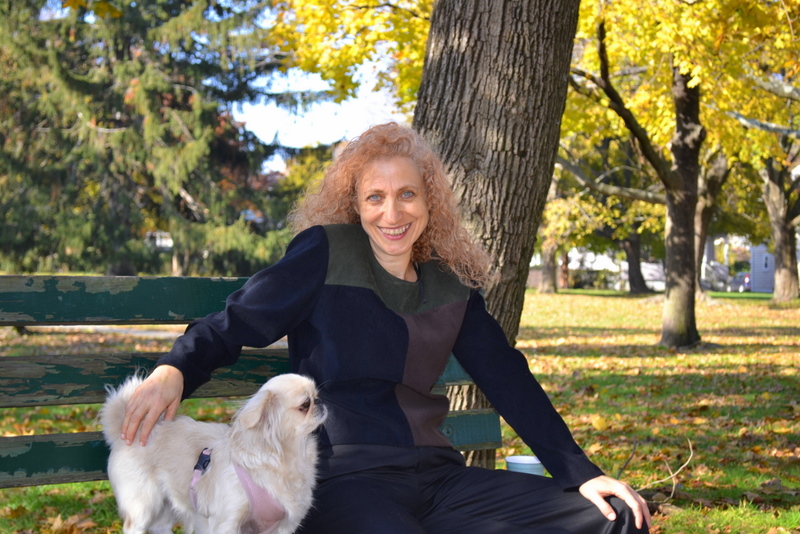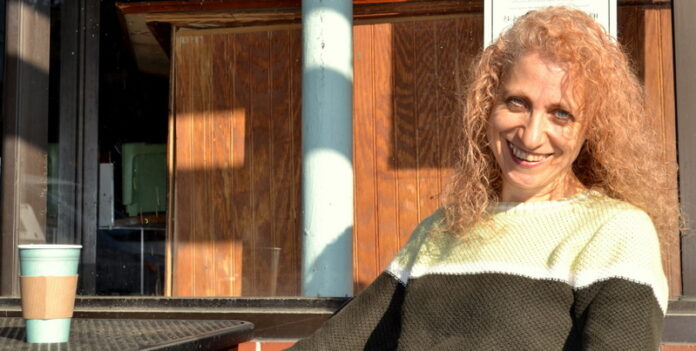Exclusive interview with Amanda Nitsa Oz – Screenwriter
Amanda Nitsa Oz’s writing is based on personal experience: she grew up as a victim of a ritual abuse pedophile group.
It is also based on her work as a therapist with other survivors of ritual abuse.
Amanda had written a pilot and a feature; both are psychological thriller screenplays, and both received a coverage of RECOMMEND (top 3% and 2%, respectively). Her scripts were placed in 13 script competitions, winning six “Best Screenplay” awards.
Amanda is represented by two managers.
Bachelor: Theater Arts, Tel Aviv University, Israel
Master’s: Clinical Social Work, Smith College, MA
Partial Master’s: Visual Arts, Emerson College, MA

NY Glam: Tell us a little about yourself.
I grew up in a small neighborhood in Israel called NEVE MAGEN, which means Oasis for Protectors. It was a community intended for high military personnel. My father was a Lieutenant Colonel in the Israeli army. He was a brilliant man who was related to Albert Einstein through the scientist’s first wife. He spoke five languages fluently and wrote flawlessly in four. He never got as much as a parking ticket.
Also, he belonged to a secret pedophile group, which encouraged its members to break all of society’s norms, expectations, and taboos and observe only the cult’s rules. For example, they said wouldn’t it be fun and profitable if we used our own children for child pornography and child prostitution?
NY Glam: What effect did such upbringing have on you?
I remember when I was ten; I spent a week in the hospital because of a broken arm. I loved it. I thought being in the hospital was the best thing ever. In fact, my mom told me that when I got back from the hospital, I asked that my lunch be served on a tray.
It wasn’t until later in life that I realized most people prefer to stay home rather than be in the hospital. Also, most people didn’t feel so numb inside.
In my early 20s, I started therapy, and gradually, trauma memories surfaced. I utilized any therapy I could get talk therapy, psychodrama, body therapy, art therapy, group dynamics, EMDR, and more.
I also had to develop myself to improve on areas that were compromised by growing up in a ring, such as self-esteem, communication skills, and the ability to ask for help. Eventually, I started feeling whole again. And it only took me 40 years…
NY Glam: What brought you to writing?
I had noticed that the kind of ritual abuse trauma I survived was never mentioned anywhere in media or school nor screened for by any of the highly skilled therapists I was in treatment with. It ended up being the women’s movement that initiated the two breakthroughs in my recovery, not the professional world.
A caring volunteer from a rape crisis center supported me in recovering my first trauma memory. I recalled being sexually abused by a man before my father collected the fee. I was five years old. Later, it was a folder in the Women’s Center in Boston that first introduced me to the topic of Multiple Personalities.
Even when I was learning to be a therapist at Smith College, neither topic was mentioned. I set a goal to try to break the silence over the problem in mass media. How hard can it be J?
My first plan was to become a producer for media regarding ritual abuse, so I applied to Emerson College. Still, when I arrived there, I quickly realized that for such media to be produced, I would have to write the scripts myself.
NY Glam: How did you develop as a writer?
A teacher at Emerson told the class that thrillers are always in high demand. Myfirst reaction was, “Great, exactly the medium I am not interested in,” and then a second thought hit me: “Unless it is about the kind of organized crime rings I grew up in”. For the first five years of writing, I worked with a brilliant mentor from Emerson named Martie Cook, who was willing to give me ongoing feedback on my drafts patiently. It was only because I was very stubborn that I finished a complete draft of my first script. It was challenging for two reasons: first, the cult pressured the children never to tell on their crimes. They scare you about it one hundred ways, and the threats do not remain verbal.
Secondly, I put an expectation on myself that in order to be a “real” writer; I must be able to develop all aspects of the writing on my own. There were more pulling teeth and less fun during the first five years. After five years, I allowed myself to start collaborations with other writers. Everything became easier and much more enjoyable. Meeting other people for brainstorming sessions and receiving feedback and suggestions on aspects that were not my cup of tea. Example: fight scenes.
NY Glam: What are some of your challenges in creating characters?
Being trained as a therapist at Smith College, I am committed to being very careful with what I say and how I say it. That is great for a relationship, but for writing, it’s boring. Initially, all my characters sounded the same and didn’t have much flavor. That was another area I used other writers’ feedback and suggestions to make the roles more colorful and diverse.
Being trustworthy and credible is also very important to me. Therefore, I didn’t want the characters I identified with (mainly the victims or survivors) to have real flaws, such as using addictive drugs or having affairs. Again, I had to learn to separate myself from my characters and allow them to live in ways that may not be acceptable to me in real life.
NY Glam: What are some of the challenges of writing about Non-State Torture?
Part of the reason why not many people know about the illegal activities of ritual abuse groups (Such as child pornography, child prostitution, cruelty to animals, and murders) is that these groups spend a lot of energy scaring the kids not to tell. They also mind program ways to make sure survivors don’t remember the trauma, and even if they do, it won’t be easy to disclose.
After creating the defense of Multiple Personalities/DID within the kids, they program one of the parts to come out when the survivor is about to compromise the group’s safety.
Using drugs, hypnosis, and torture, they programmed that part to inflict a strong feeling of exhaustion when someone is about to remember trauma or talk about it. This has happened to me many times while writing. I would sit down to write, and if the material is sensitive, I get so tired immediately (Even after a full night of sleep) that I must go down and rest or meditate for an hour. This never happens with other kinds of writing.
NY Glam: How do you bring to screen horrifying events?
It is a challenge. The kind of trauma people face in these types of rings is extreme. Additionally, it is often committed against helpless babies, children, and animals. How am I to show that on screen?
First, I had to be very careful with what I chose to show and go very gentle and gradual with the audience. Sometimes I only hint at what is happening.
I originally wrote the leading children to be five years old. A lot of my personalities are four years old. The feedback I got was that using such young actors would be a hardship for my production. The compromise I found was to bring the kids up in age to eight years old and include younger parts in tiny roles, so one still gets the message that they start abusing the children/babies at a very young age.
NY Glam: What advice do you have for aspiring writers?
Just get started. If you read a finished script, you might think, how can I ever write so well? Don’t let that discourage you.
The first drafts I had were truly pathetic. But it was a start. It took round after round of rewrites to improve them. I worked on the outline alone for years.
And the second thing is always to make sure to receive feedback. It helped me grow and improve and stay within the path I should be walking.
Views: 61






